Meditation vs. Medication: Which is Better for Anxiety:Anxiety is a common problem that affects many people, impacting their daily lives and overall happiness. When it comes to dealing with anxiety, two main methods often come up: meditation and medication. In this post, we will compare these methods to help you decide which might be better for you.
Meditation vs. Medication
| S.no | Aspect | Meditation | Medication |
| 1 | Effectiveness | Effective for mild to moderate anxiety with regular practice. | Effective for moderate to severe anxiety, often with quick relief. |
| 2 | Time to See Benefits | Requires consistent practice over weeks or months. | Often provides quick relief, especially in acute cases. |
| 3 | Side Effects | Minimal side effects, generally positive effects on well-being. | Possible side effects like drowsiness, dependency, nausea. |
| 4 | Cost | Low-cost, especially with free online resources. | Can be costly due to prescription and regular check-ups. |
| 5 | Accessibility | Easily accessible with many free or low-cost resources. | Requires prescription and access to healthcare providers. |
| 6 | Approach | Natural, holistic approach focusing on mindfulness and relaxation. | Pharmaceutical approach targeting brain chemicals. |
| 7 | Consistency Required | Needs daily practice and consistency for best results. | Requires regular use as prescribed, with ongoing medical supervision. |
| 8 | Long-Term Benefits | Can improve emotional regulation, mental clarity, and overall well-being. | Provides symptom relief; often used in combination with therapy for long-term results. |
| 9 | Scientific Support | Supported by studies showing reduction in anxiety, depression, and pain. | Backed by extensive research showing effectiveness for various anxiety disorders. |
| 10 | Situations Where Effective | Best for those seeking non-drug methods for managing anxiety. | Best for severe anxiety needing immediate relief or unsuccessful with other treatments. |
| 11 | Combining Both Approaches | Often combined with medication for comprehensive treatment. | Can be combined with meditation for enhanced treatment outcomes. |
| 12 | Personal Involvement | Requires active personal involvement and self-discipline. | Requires following medical advice and prescriptions. |
Understanding Anxiety
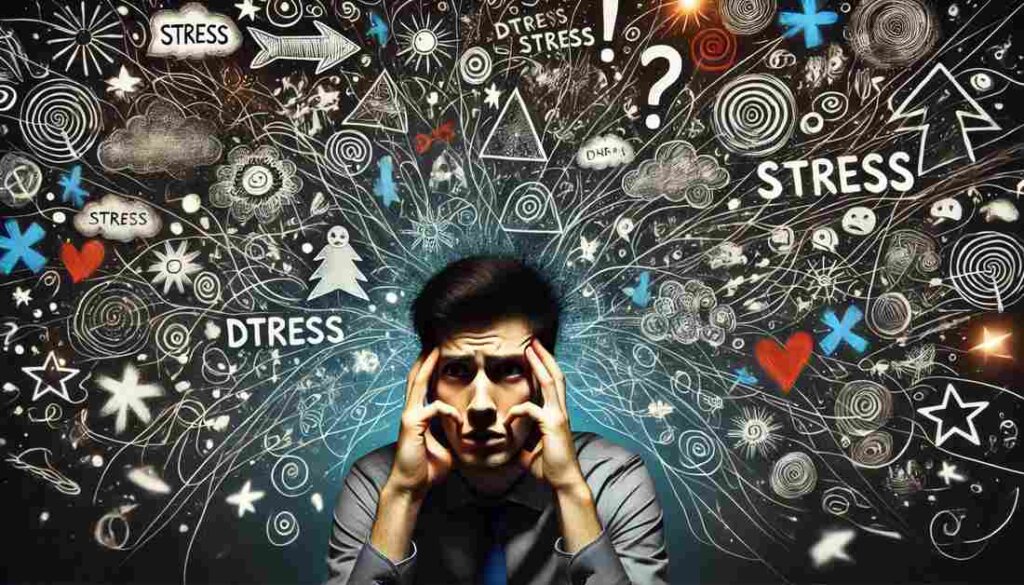
Anxiety is a feeling of worry, nervousness, or fear that can be mild or severe. Common signs include feeling restless, a fast heartbeat, sweating, and trouble focusing. These feelings can make it hard to do daily tasks, keep up relationships, and do well in school or work.
Anxiety can show up in different ways, including:
Generalized Anxiety Disorder (GAD):
This means you worry a lot about different things in your life. People with GAD find it hard to control their worry and often expect the worst, even when there is no clear reason to be worried. Symptoms may include tense muscles, feeling tired, trouble concentrating, and problems sleeping.
This constant worry can make it hard to do everyday tasks.
Panic Disorder:
[Meditation vs. Medication: Which is Better for Anxiety]
This involves sudden episodes of intense fear, called panic attacks. These attacks can happen without warning and are often accompanied by physical signs like a racing heart, shortness of breath, dizziness, and chest pain. The fear of having another panic attack can lead to avoiding certain places or situations, which can greatly affect a person’s daily life.
Social Anxiety Disorder:
This is the fear of social situations and being judged by others. People with social anxiety may worry a lot about embarrassing themselves in social settings, leading to avoiding social interactions or enduring them with great distress. Symptoms can include sweating, shaking, feeling sick, and difficulty speaking.
This fear can affect work, school, and relationships, making it hard to connect with others.
Specific Phobias:
This is an irrational fear of specific things or situations, like heights, spiders, or flying. These fears can cause a lot of stress and lead to avoiding the things you fear, even if they are not really dangerous. People with specific phobias may go to great lengths to avoid their triggers, which can limit their daily activities.
Obsessive-Compulsive Disorder (OCD):
This is when you have unwanted, repeated thoughts (obsessions) and do certain behaviors or mental acts (compulsions) to reduce anxiety.
[Meditation vs. Medication: Which is Better for Anxiety]
For example, someone with OCD might keep checking if a door is locked to ease the fear of a break-in. These compulsions take up a lot of time and can interfere with daily life.
Understanding the type of anxiety you have is important in figuring out the best way to handle it. Both meditation and medication can help, but their suitability might depend on the specific type and severity of the anxiety.
Benefits of Meditation for Anxiety

Reduction in Stress and Anxiety Levels:
Regular meditation has been shown to lower stress and anxiety by calming the mind and body. By focusing on the present moment, you can stop the cycle of worry and fear that often comes with anxiety.
Studies, such as those published in JAMA Internal Medicine, show that mindfulness meditation can reduce anxiety, depression, and pain.
This practice helps you see your thoughts and feelings from a distance, without getting caught up in them.
Improvement in Overall Well-Being and Mental Clarity:
Meditation can make you feel more clear-headed and balanced. This can help you make better decisions and feel more in control of your life. Mindfulness, in particular, has been shown to increase gray matter in brain areas related to memory, emotional control, and learning.
[Meditation vs. Medication: Which is Better for Anxiety]
These changes support long-term improvements in thinking and emotional health, making it easier to handle daily challenges and stress.
Improved Sleep Quality:
Many people with anxiety have trouble sleeping. Meditation can help improve sleep by relaxing you and reducing the high alertness that comes with anxiety. Techniques like mindfulness meditation and guided imagery can help quiet your mind before bed, making it easier to fall asleep and stay asleep.
Better sleep can also reduce anxiety, creating a positive cycle where good rest supports good mental health.
Enhanced Emotional Regulation:
Regular meditation can help you manage your emotions better. Mindfulness meditation teaches you to watch your emotions without judging them, which helps you understand and manage your feelings more effectively.
This can lead to fewer and less intense episodes of anxiety because you’re better at handling stress and uncertainty.
Scientific Studies Supporting Meditation for Anxiety:
Many studies show that meditation can greatly reduce symptoms of anxiety and improve mental health. A study in JAMA Internal Medicine found that mindfulness meditation helps reduce anxiety, depression, and pain.
Another study by Johns Hopkins University reviewed many clinical trials and found that meditation programs can lead to small to moderate reductions in various stress-related issues, including anxiety. [Meditation vs. Medication: Which is Better for Anxiety]
Potential Drawbacks of Meditation
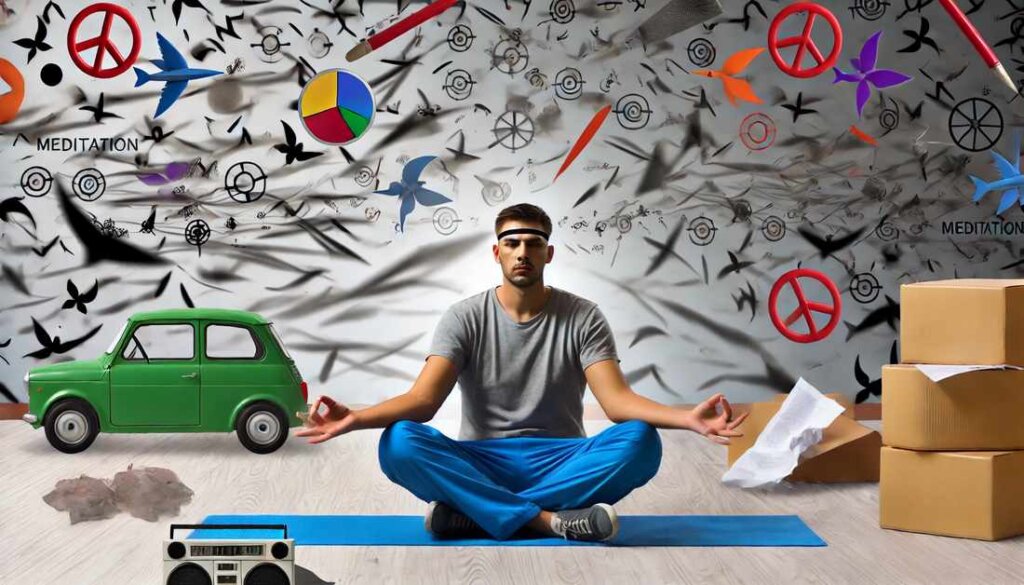
Time and Consistency Required:
Meditation needs regular practice and consistency to see significant benefits. It may take weeks or even months of daily practice before you notice improvements. Some people might find it hard to make time for meditation, especially if they have busy schedules or other stressors.
But sticking with it is important because the benefits of meditation build over time.
Initial Difficulty:
Some people might find it hard to learn meditation techniques and stay focused. It can be frustrating at first, especially if you’re not used to sitting quietly and observing your thoughts. Beginners might feel restless or have trouble quieting their minds, which can be discouraging.
However, with persistence and using guided meditations or instructional resources, many people can overcome these challenges and develop a successful meditation practice.
Not Always Sufficient Alone:
In severe cases of anxiety, meditation alone might not be enough and may need to be combined with other treatments.
For example, someone with severe panic disorder might benefit from both meditation and medication. While meditation can provide significant benefits, it may not address all aspects of severe anxiety or underlying mental health conditions.
Combining meditation with other treatments, like therapy or medication, can provide a more complete approach. [Meditation vs. Medication: Which is Better for Anxiety]
Benefits of Medication for Anxiety
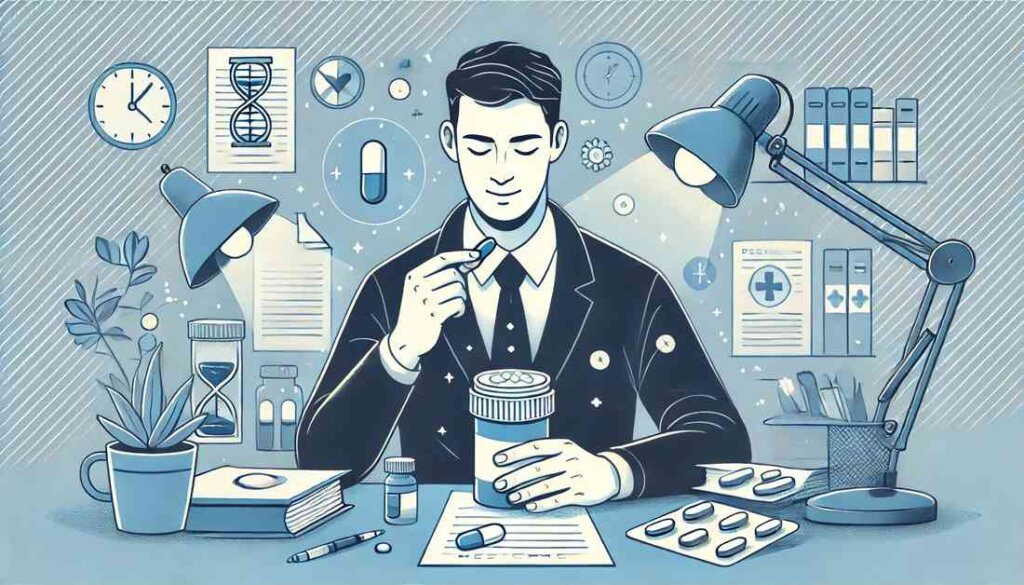
Quick Relief from Severe Anxiety Symptoms:
Medications can provide fast relief from severe anxiety symptoms, making them effective for urgent situations.
For example, someone having a panic attack may find immediate relief from certain medications. This quick action can be very important when anxiety is overwhelming and interferes with daily life.
Effectiveness for Different Types of Anxiety Disorders:
Medications are often effective for different types of anxiety disorders, including generalized anxiety disorder, panic disorder, and social anxiety disorder.
This versatility makes them a valuable option for many people. By targeting specific chemicals in the brain, these medications can help reduce the intensity and frequency of anxiety symptoms.
Scientific Studies Supporting Medication for Anxiety:
There is a lot of research showing that medications work well for managing anxiety.
For example, a study published in The Lancet Psychiatry found that SSRIs (a type of medication) are effective in reducing symptoms of anxiety disorders. This evidence supports the use of medication as a reliable treatment option for anxiety.
Potential Drawbacks of Medication
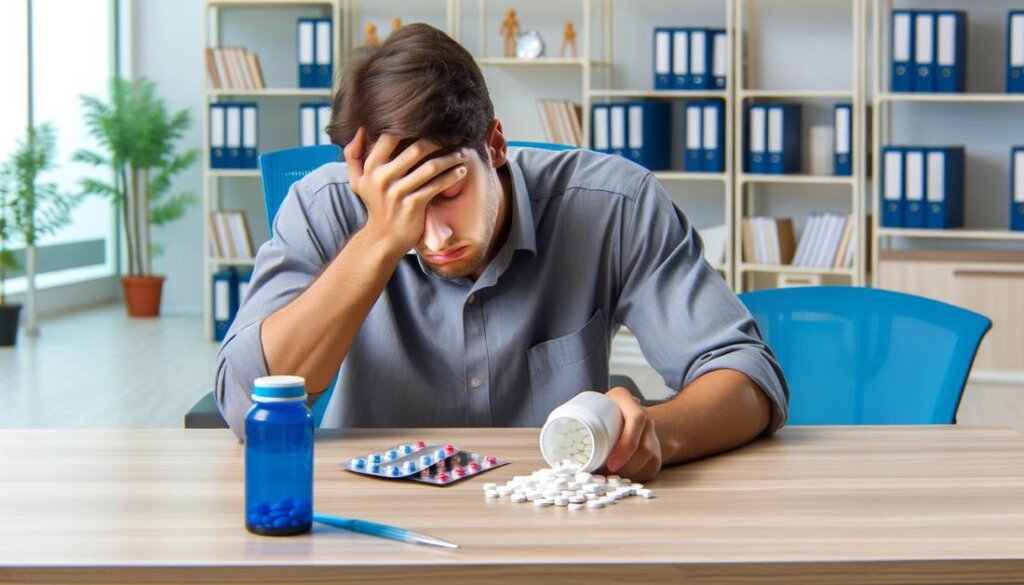
Possible Side Effects:
Medications can have side effects like drowsiness, dependency, and other health risks. It’s important to talk about these possible side effects with a healthcare provider before starting any medication. [Meditation vs. Medication: Which is Better for Anxiety]
For example, some medications can cause sleepiness and may lead to dependency if used for a long time.
Other medications might cause nausea, weight gain, or problems with sexual function. It’s important to monitor and manage these side effects to use medication safely and effectively.
Need for Prescription and Supervision:
Medications require a doctor’s prescription and ongoing check-ups. This means regular visits to a healthcare provider to monitor side effects or changes in symptoms.
Keeping in touch with your healthcare provider ensures that the medication is working well and any side effects are dealt with quickly.
This supervision is necessary to adjust dosages or change medications as needed.
Not Always the Best Choice Alone:
Medications might not solve the root cause of anxiety and are often most effective when combined with therapy or lifestyle changes.
For example, cognitive-behavioral therapy (CBT) is often used with medication to address the thought patterns that contribute to anxiety. Medication can provide symptom relief, but combining it with therapy and healthy habits, like exercise and good sleep, can lead to better long-term results.
Comparing Meditation and Medication
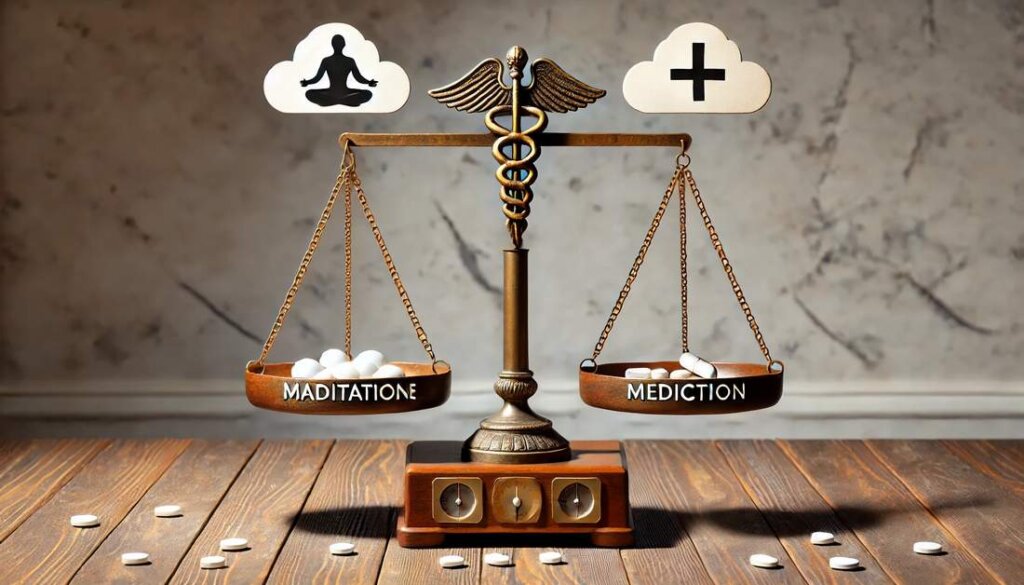
Situations Where Mediation Might Be More Effective:
[Meditation vs. Medication: Which is Better for Anxiety]
Meditation can be more effective for those looking for a natural, holistic way to manage mild to moderate anxiety and improve overall well-being. It is especially good for those who prefer non-drug methods and are willing to practice regularly.
For example, people who feel anxiety due to stress or who want to build their emotional resilience might find meditation helpful.
Meditation’s focus on mindfulness and self-awareness can help people develop healthier ways to cope with life’s challenges.
Situations Where Medication Might Be More Effective:
Medication might be better for people with severe anxiety who need quick relief or who haven’t had success with other treatments. It can be particularly helpful in urgent situations or when anxiety seriously affects daily life.
For example, someone who has frequent panic attacks that make it hard to work or socialize might benefit from the fast calming effects of medication.
In such cases, medication can provide the needed stability to allow someone to take part in other therapies, like counseling or group therapy.
Using Both Approaches Together:
Combining meditation and medication can be a powerful way to manage anxiety, addressing both the symptoms and the underlying issues.
[Meditation vs. Medication: Which is Better for Anxiety]
For example, someone might use medication for quick relief while also practicing meditation to build long-term coping skills. This mixed approach can provide thorough support, letting people benefit from both methods.
Research shows that combining medication with mindfulness practices can improve treatment results, offering a balanced way to handle anxiety.
Personal Factors to Consider:
It’s important to think about the severity of your anxiety, your personal likes and dislikes, and your medical history when choosing an approach. Talking to healthcare professionals can help you make an informed decision.
Things like past experiences with medication, any other health conditions you have, and your lifestyle preferences can influence your choice of treatment.
A personalized treatment plan, created with healthcare providers, can meet your individual needs and lead to better anxiety management.
Cost and Accessibility:
Another important factor to think about is the cost and availability of each method. Meditation, especially when self-taught or done through free online resources, can be a low-cost option.
However, structured meditation programs or classes might cost money. Medication, on the other hand, usually needs a doctor’s prescription and regular check-ups, which can add to healthcare costs. [Meditation vs. Medication: Which is Better for Anxiety]
Also, access to mental health services and medication can vary depending on where you live, insurance coverage, and availability of healthcare providers. Considering these factors can help you find the most practical and sustainable way to manage anxiety.
Expert Opinions
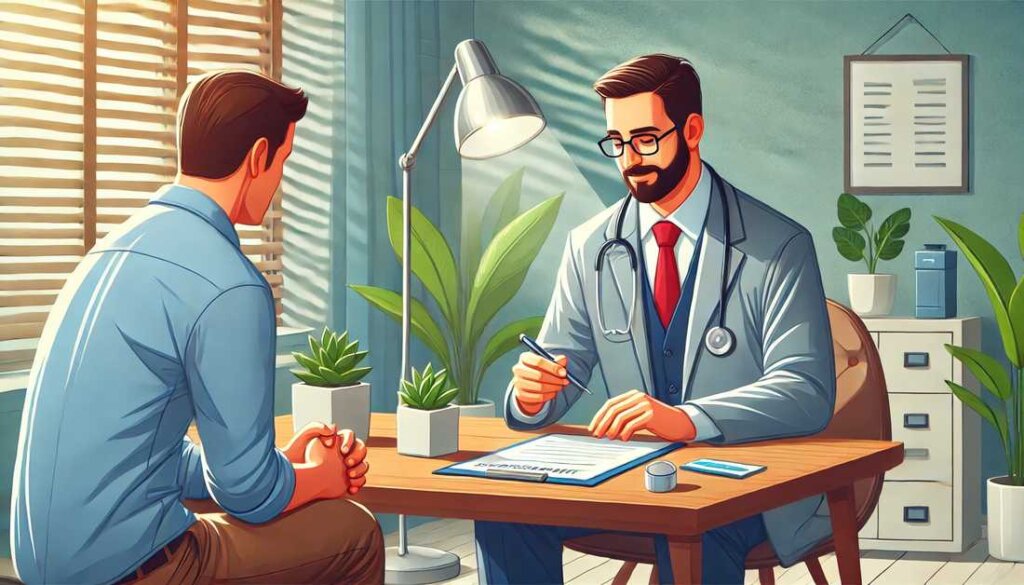
Mental health professionals often recommend using both methods together. Dr. Jane Smith, a psychiatrist, says, “For many patients, a mix of medication and meditation can give both quick relief and long-term benefits. Medication can help stabilize symptoms, while meditation can build resilience and improve overall mental health.”
Research also supports using both meditation and medication. A study in the Journal of Clinical Psychiatry found that patients who used both methods saw greater reductions in anxiety symptoms compared to those who used just one method.
Making the Right Choice for You
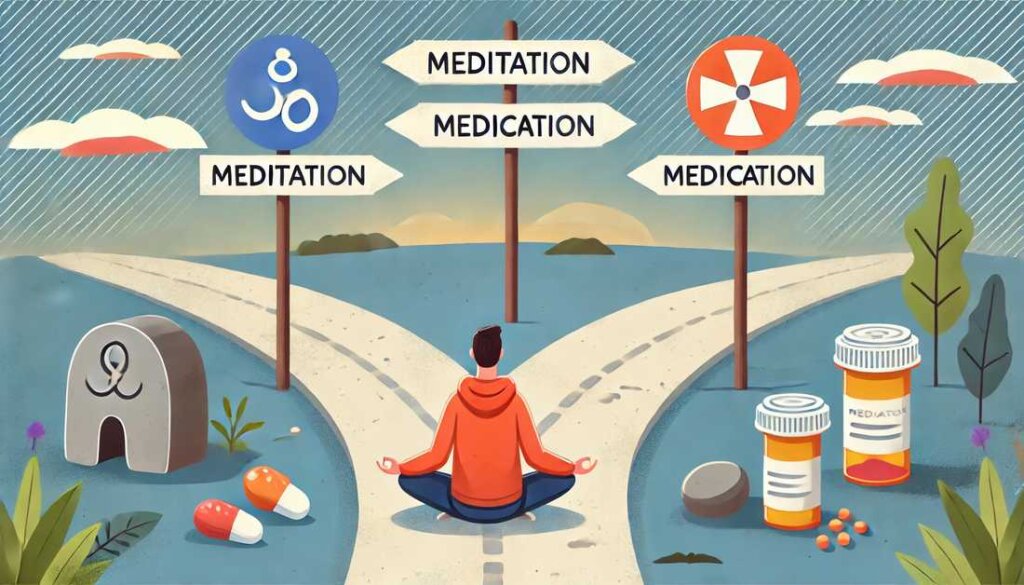
Talking to healthcare professionals is crucial to finding the best way to handle your anxiety. They can help you weigh the benefits and drawbacks of each method and create a personalized treatment plan. Consider the severity of your anxiety, your personal preferences, and any other health conditions you might have.
Samarpan Meditation

[Meditation vs. Medication: Which is Better for Anxiety]
Friends, many of you must have this question in your mind that there are many methods of meditation, so which method of meditation should we meditate with so that we can control our anxiety and live a worry-free life.
So friends, here I would like to suggest to you the Samarpan Meditation method. I myself have been meditating with this meditation method for the last 15 years and I am still experiencing the positive results of it in my life.
This meditation method is taught free of cost all over the world. There are no strict rules to be followed in this meditation method and a person of any religion or country can meditate with this meditation method.
It is very easy to meditate with this meditation method. There is no complex process or difficult postures in it. It is very simple and easy, even a 12-year-old child can do it easily.
Although there are many methods of meditation, I do not know about them nor do I have any experience about them. Therefore, it would not be appropriate to give you any suggestions about them.
If you want you can get information about them and also take their experience. Later you can share your experience with me.
Conclusion [Meditation vs. Medication: Which is Better for Anxiety]
Friends, I hope you liked this blog post of mine and through this blog post you have been able to understand how you can live a worry-free life by making a better balance between meditation and medicines.
If you liked this post of mine, then you are requested to read my other blog posts as well. In them too I have discussed various meditation topics which can be very useful for you.
If you have any questions related to this blog post, then you can ask it to me in the comment box. I will try my best to answer your questions.
If you have any suggestion about this blog post or you want to share any of your experiences with us, then you can write in the comment box.
In the end, all I would like to say is that both meditation and medicines provide valuable benefits for managing anxiety.
Meditation gives you a natural, holistic way to reduce stress and improve mental clarity, while medicines provide quick relief for severe symptoms.
The best method depends on your individual needs, the severity of anxiety and your personal preferences. Seeking help and exploring these options is a positive and important step toward better mental health.
By understanding the benefits and limitations of each method, you can make an informed decision and take control of your anxiety management. Thank you!
To read my other blogs: Click here